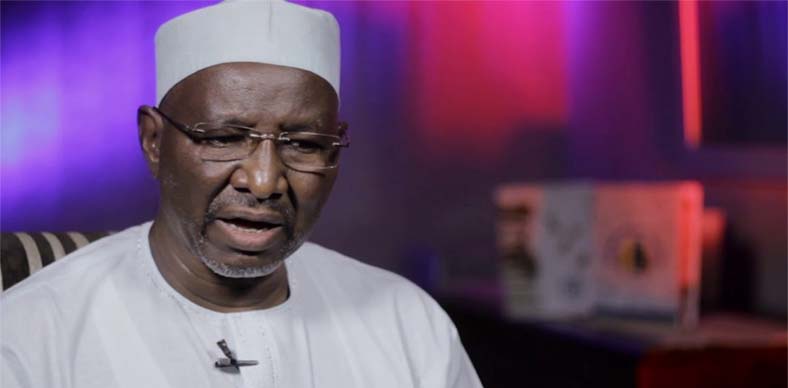Usman Bugaje, a seasoned political figure and former presidential adviser, has launched a scathing critique of the ruling All Progressives Congress (APC), accusing it of systematically dismantling the opposition Peoples Democratic Party (PDP) through financial inducements. Bugaje’s allegations paint a stark picture of a political landscape where money has become the primary currency of loyalty, threatening the very foundations of Nigeria’s democratic process. He contends that the APC’s strategy centers on exploiting vulnerabilities, offering financial incentives to sway key PDP figures while simultaneously wielding the threat of investigation against those with potential legal liabilities. This two-pronged approach, according to Bugaje, has effectively neutered the PDP, rendering it incapable of fulfilling its role as a robust opposition force.
Bugaje’s concerns extend beyond the immediate political maneuvering to the broader implications for Nigeria’s democratic future. He warns that the pervasive influence of money in politics signals a dangerous erosion of democratic values, potentially leading the nation down a path reminiscent of authoritarian regimes. He draws parallels to the case of Alberto Fujimori in Peru, whose presidency was marked by authoritarian tendencies and manipulation of democratic institutions. Bugaje argues that if money continues to dictate political allegiances, Nigeria risks a similar fate, where the pursuit of power supersedes the principles of democratic governance and accountability.
The recent wave of defections from the PDP, particularly in Delta State, serves as a stark illustration of Bugaje’s claims. While the PDP’s leadership has downplayed the significance of these departures, Bugaje dismisses their response as weak and indicative of the party’s internal decay. He contends that the PDP has effectively ceded its oppositional role, failing to hold the government accountable on critical national issues, ranging from emergency rule debates to budget scrutiny. He argues that the party’s lack of cohesive action and internal divisions have created a vacuum that the APC has skillfully exploited, further solidifying its dominance in the political arena.
Bugaje’s critique delves deeper than just the current political dynamics, touching upon the structural deficiencies within Nigeria’s political parties. Drawing from his own experiences during the formation of the APC, he reveals how efforts to establish merit-based criteria for party leadership were thwarted by entrenched self-interests. He laments the prioritization of personal gain over institutional development, arguing that this has led to a situation where unqualified and ethically compromised individuals occupy positions of power within the parties. This, in his view, perpetuates a cycle of transactional politics, where loyalty is bought and sold, undermining the integrity of the political system.
He asserts that the dominance of these transactional relationships has resulted in a leadership vacuum, filled by individuals lacking the necessary character, education, and commitment to uphold democratic principles. This, he argues, is a dangerous trend that threatens the long-term stability and health of Nigeria’s democracy. He emphasizes the need for individuals with integrity, competence, and a genuine commitment to the party’s ideals to assume leadership roles, arguing that this is crucial for building strong and resilient political institutions. He warns that the current trajectory, where political positions are treated as commodities to be traded, will inevitably lead to further erosion of democratic values and the weakening of institutions essential for a functioning democracy.
Bugaje concludes his critique by reaffirming his long-standing opposition to these corrupting practices. He recounts his own efforts to challenge the status quo within the APC, highlighting his attempts to introduce meritocratic principles into the party’s structure. Though his efforts were ultimately unsuccessful, he emphasizes the importance of continuing to advocate for reforms that prioritize competence, integrity, and genuine commitment to the party’s ideals over personal gain. He believes that only through such reforms can Nigeria’s political parties regain their credibility and effectively serve the interests of the people. His message serves as a stark warning against the perils of transactional politics and a call for a return to principled leadership, emphasizing the urgent need for a fundamental shift in the way political parties operate if Nigeria is to consolidate its democratic gains.














